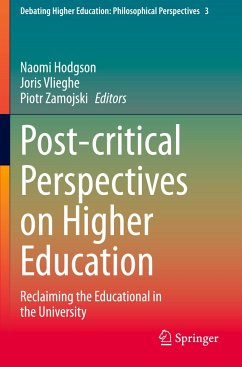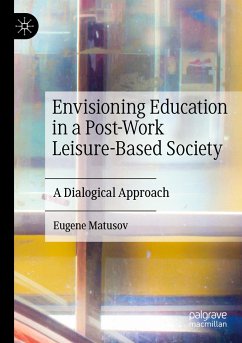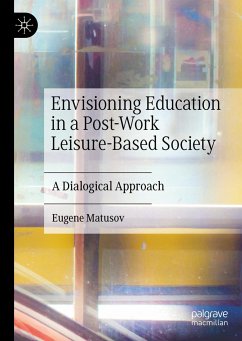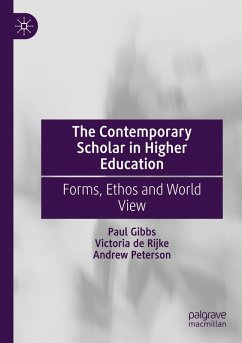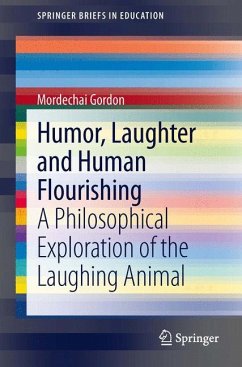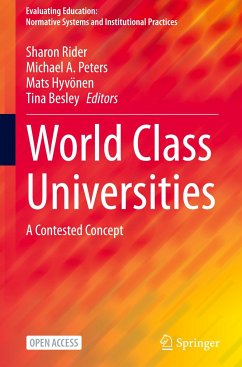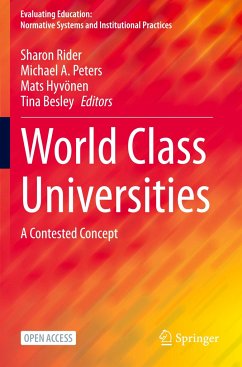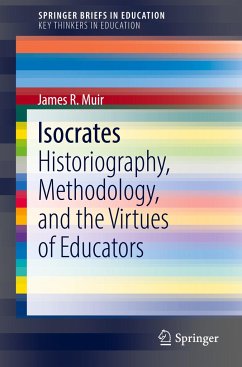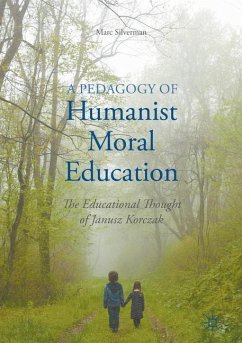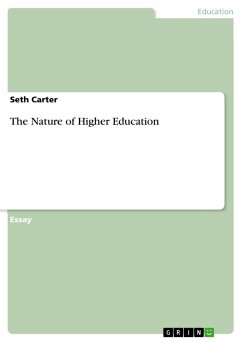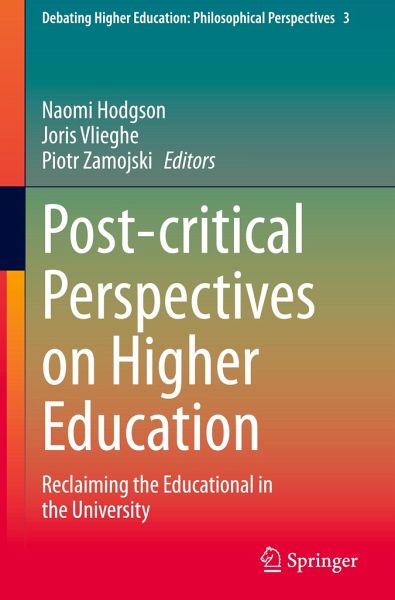
Post-critical Perspectives on Higher Education
Reclaiming the Educational in the University
Herausgegeben: Hodgson, Naomi; Vlieghe, Joris; Zamojski, Piotr

PAYBACK Punkte
53 °P sammeln!
This book addresses essential educational dimensions of the university that are often overlooked, not only by prevailing discourses and practices but also by standard critical approaches to higher education. Each chapter takes a different approach to the articulation of a 'post-critical' view of the university, and focuses on a specific dimension, including lectures, academic freedom, and the student experience. The 'post-critical' attitude offers an affirmative approach to the constitutive educational practices of the university. It is 'post-' because it is a movement in thought that comes af...
This book addresses essential educational dimensions of the university that are often overlooked, not only by prevailing discourses and practices but also by standard critical approaches to higher education. Each chapter takes a different approach to the articulation of a 'post-critical' view of the university, and focuses on a specific dimension, including lectures, academic freedom, and the student experience.
The 'post-critical' attitude offers an affirmative approach to the constitutive educational practices of the university. It is 'post-' because it is a movement in thought that comes after the critical, which, in its modern and postmodern forms is considered, in Latour's terms, to have 'run out of steam'. It is an attempt to articulate new conceptual and methodological tools that help us grasp our current conditions. It is not anti-critique; but rather than seeking to debunk current practices, this affirmative approach offers perspectives that shed new light on what we do as educators, on the essence of our educational practices, and on their immanent value. The focus on the educational, then, applies not only to practices that happen to take place in the educational space of the university, but also to those practices whose value we can understand in educational terms.
The 'post-critical' attitude offers an affirmative approach to the constitutive educational practices of the university. It is 'post-' because it is a movement in thought that comes after the critical, which, in its modern and postmodern forms is considered, in Latour's terms, to have 'run out of steam'. It is an attempt to articulate new conceptual and methodological tools that help us grasp our current conditions. It is not anti-critique; but rather than seeking to debunk current practices, this affirmative approach offers perspectives that shed new light on what we do as educators, on the essence of our educational practices, and on their immanent value. The focus on the educational, then, applies not only to practices that happen to take place in the educational space of the university, but also to those practices whose value we can understand in educational terms.





